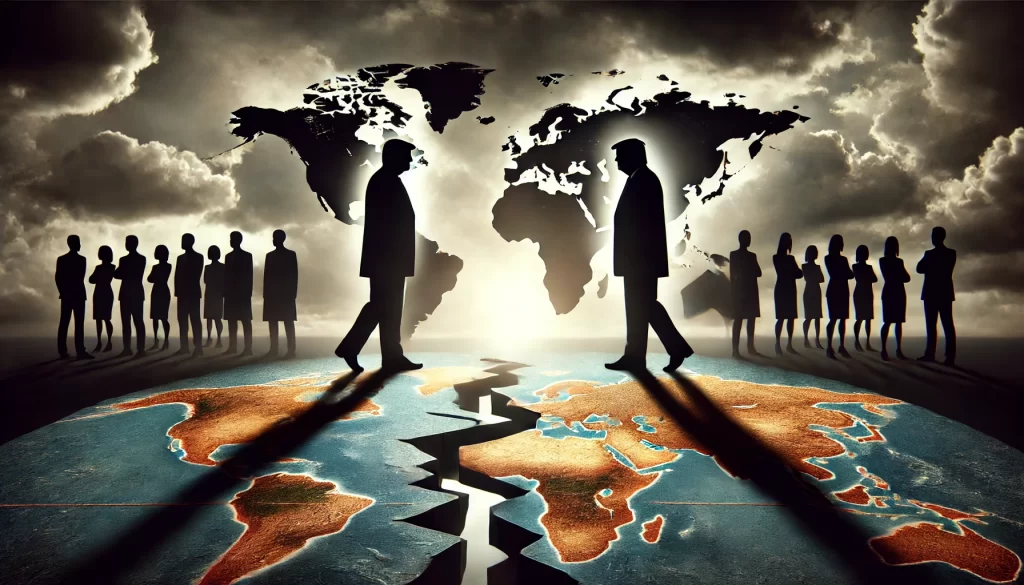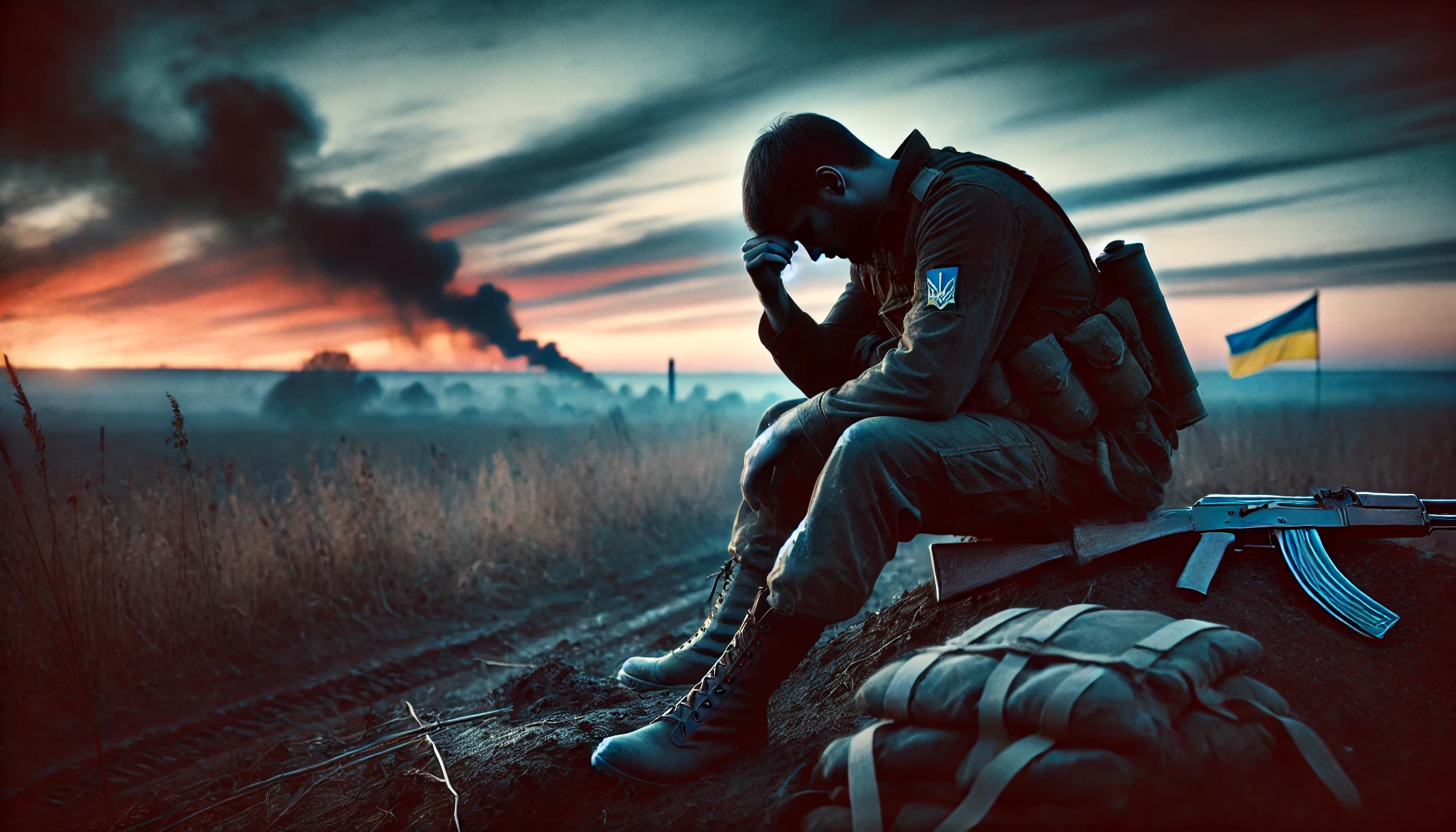In a big change from how the United States has acted for many years, President Donald Trump is now talking directly with Russia instead of working closely with Ukraine and its allies. For decades, American policy has been about supporting countries that fight for their freedom, but Trump’s new plan shows a very different way of handling the conflict.
At a recent meeting in Saudi Arabia, Trump made surprising comments that turned old ideas upside down. He said, “You should have never been there. You could have made a deal.” By blaming Ukraine for the war, he suggested that its leaders made poor choices that allowed the conflict to continue. He also added, “You’ve had a seat for three years. And a long time before that.” These words have shocked many people because they seem to ignore the fact that Russia invaded Ukraine long ago.
Trump’s plan includes ideas that were once unthinkable. He now believes that instead of isolating Russia, the United States should work with it as if it were one of its best friends. This new direction means that some of the old promises—like protecting Ukraine’s right to join groups such as NATO and providing security help—might change. Trump even claims that with his way of thinking, he could have ended the war quickly with very little loss of land and life.
Not only did Trump point his finger at Ukraine for starting the war, but he also began to criticize Ukraine’s President Volodymyr Zelensky in a very harsh way. On Truth Social, he wrote, “Think of it, a modestly successful comedian, Volodymyr Zelenskyy, talked the United States of America into spending $350 Billion Dollars, to go into a War that couldn’t be won, that never had to start, but a War that he, without the U.S. and ‘TRUMP,’ will never be able to settle.” He continued by saying, “He refuses to have Elections, is very low in Ukrainian Polls, and the only thing he was good at was playing Biden ‘like a fiddle.’ A Dictator without Elections, Zelenskyy better move fast or he is not going to have a Country left.” These strong words have added even more fuel to the fire.

In Kyiv, many Ukrainians are reacting with both dismay and defiance. Some residents feel that Trump’s new stance is like taking the enemy’s side. One person in the capital said, “I think this is the wrong policy and the wrong accusations of Ukraine. They are accusing the victim, and he (Trump) is taking our enemy’s side.” Others worry that if the United States no longer stands by Ukraine, the country might be forced to fight alone. A retired officer even said, “If America does not want to help, then let it stay in its own sphere, let it deal with the Indo-China region, we need to contact Europe, first of all the Baltic countries, with Poland and defend our interests.”
Another part of Trump’s plan that has upset many is his push for elections in Ukraine during the war. An artist in Kyiv commented, “Elections during the war are impossible. A lot of people have left the country. This is totally irrelevant question, to spend resources for the elections during the war.” Many Ukrainian leaders believe that holding elections now would only cause more chaos and might even allow Russia to interfere.
Experts say that Trump’s pivot is one of the most dramatic changes in American foreign policy in generations. For years, U.S. presidents have worked hard to support freedom and help countries like Ukraine stand up to aggression. Now, by talking to Russia as if it were a friend and blaming Ukraine for its own troubles, Trump is rewriting a long history of American support for nations in need.
This article is based on the following articles:
https://www.reuters.com/world/europe/dismay-defiance-kyiv-trump-takes-our-enemys-side-2025-02-19

Background Information
Many countries have long worked together to protect smaller nations and help maintain peace in the world. The United States, for example, has a history of supporting countries that are fighting for their independence and freedom. This support is often part of a larger set of agreements and alliances that countries build over time to help each other when problems or conflicts arise.
Ukraine is a country in Eastern Europe with a long and complicated history. It became an independent nation after the breakup of the Soviet Union—a large country that once controlled many smaller nations in the region. Over the years, Ukraine has worked to build its own government and economy while facing challenges from its larger neighbor, Russia. Russia, which has its own history of strong leadership and territorial ambitions, has at times tried to influence events in Ukraine and other nearby countries.
The conflict between Ukraine and Russia is rooted in history, disagreements over territory, and different ideas about governance. When one country feels threatened or believes it has a right to certain lands, tensions can rise. In this case, actions taken by Russia over the past several years have led many other countries to view these moves as violations of international rules, which are meant to protect the rights and borders of independent nations.
At the same time, the United States has been involved in many global issues, using its power to help shape events around the world. Decisions made by American leaders can have a big impact far beyond the country’s own borders. Part of this influence comes through diplomacy, which is a way for countries to talk through their differences instead of going to war. Diplomacy involves negotiations, compromises, and sometimes the creation of new policies that change how countries interact.
Key figures play important roles in these events. Leaders like Donald Trump, who has been a very outspoken and sometimes controversial figure in American politics, and Vladimir Putin, the president of Russia, have their own ways of approaching international issues. Meanwhile, Ukraine’s president, Volodymyr Zelensky, was elected by the people of Ukraine and is working to lead his nation during these turbulent times. Understanding who these leaders are and what their roles involve helps explain why changes in policy or shifts in alliances can cause strong reactions both at home and around the world.

Debate/Essay Questions
- Do you think it is fair to blame Ukraine for the war, as Trump did? Why or why not?
- How will Trump’s shift in foreign policy affect the US in the long run?
Please subscribe to Insight Fortnight, our biweekly newsletter!
